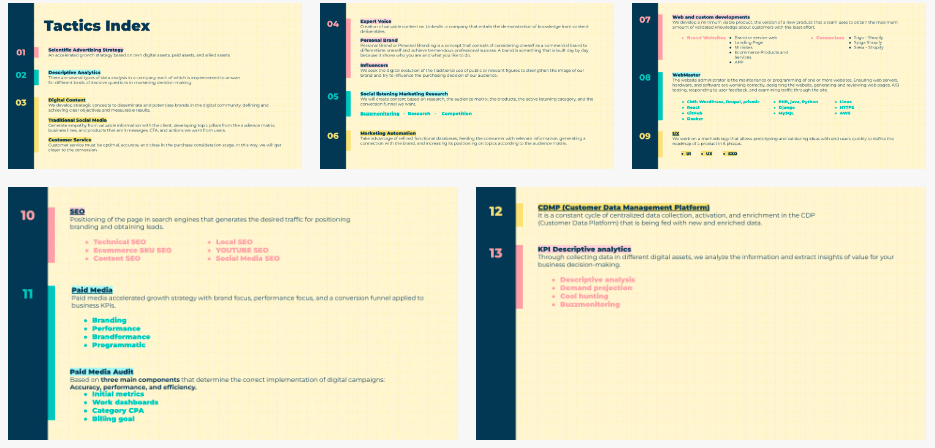If you want to see the website of your business within the first positions in Google, a robust SEO strategy will help with your objective. I will explain to you everything about this area of digital marketing.
The internet is a very competitive world: according to the numbers of Internet Live Stats currently there are 1.5 billion websites, which at first sight might make you think that it is impossible to have a popular and well positioned website.
The reality is that even though the amount of websites is alarming, there are two factors that represent an opportunity to stand out in the digital world: first; of those 1.5 billion websites, only about 2 million are active. Second; but not least important, there is SEO. Having this strategy within your digital marketing plan will allow your business to reach a website with good positioning.
SEO is the acronym for Search Engine Optimization and it refers to the different techniques and strategies in favor of improving a website to adjust it to Google standards – or any search engine – and, in this way, achieve its positioning within the first results when performing a search.
By having a website within the first page of the results the opportunities to obtain leads and achieve sales are increased, since keywords are used to reach those users whose search terms and intentions adjust to the objective public.
SEO allows to identify aspects to improve on a website in order for it to be traced and indexed correctly, as well as to improve its relevance and authority. Thanks to this, users will have a better experience and trustability towards the business.
A simple way to understand when SEO is important is knowing about Google Update, a series of upgrades that change how the search engine works in favor of the user.
The first of these updates was in 2003, and from that moment, Google periodically announces different changes, improvements and analysis over the positioning and indexation factors.
This is how tracking and indexation works
In order to understand how search engines work, two concepts must be clear: tracking and indexation.
The first “phase” of how Google works is tracking and in it a Googlebot – the search robot of the technology giant – travels all over the internet, navigating between links and sitemaps, each page of a website to understand its content.
After going through each URL of a website the bot collects this information in an index, classifying it according to its content, authority and relevance. This is known as indexation. By finishing these processes, algorithms come into play, as these computer processes decide the order in which websites appear in the search results.
To classify the order of the results, the algorithm bases on the indexed information, with the purpose of giving priority to the most relevant websites according to search term.
Authority and relevance: two crucial aspects for your website
The factors that influence the positioning of your website are quite varied and range from the title of the web page to the images alt text; but each of these factors can be grouped in the two key elements for a good ranking: authority and relevance of a website.
- Authority: This factor defines the popularity of a website based on the quality of its content, if it is shared by the users, it means it has been useful to them. Providing valuable information and quality content represents a higher authority before other websites.
- Relevance: Relevance is determined if the website is related with a search term and also analyzes the structure of the website and the user experience through on-page factors.
What type of searches do the users perform?
Users make queries on the internet all the time; either to look for information on a subject, find a business that sells a product they need or ask about how to contact a business.
For this reason it is fundamental to know the search intent of the user, that is, what is the search being done for? By knowing it you can focus your keywords and optimizations in reaching the correct public. Currently there are three types of search:
Navigational search: This category covers the users that already know to which website they are directing, so they perform the search with the name of the business. For example, if the user searches for ‘Si Señor Agencia’ in Google, its intent will be to visit the website of the business
Informational search: In this type of search a quality content is valued, because users are searching for information on how to do something, reviews of a product, guides, etc. For example, an information search could be ‘What is SEO?’
When performing this search informative articles such as this one will appear, and according to the quality of the content and the optimization of the website, will be positioned on the SERPS.
Transactional search: The most important type of search for e-commerce. In this occasion the user looks to find a store or buy directly a product or service.
Knowing the types of search allows businesses to diversify their keywords and impact the user in the correct funnel of conversion moment. Additionally, Google has implemented different tools that help the user to find in a simpler way what they are looking for: an example is that, if you search the name of a song, it is likely that its videoclip and lyrics are shown in the first results.
Types of SEO: technical, content and local.
Organic positioning covers a broad range of techniques focused on improving a website from different approaches, there are three types of SEO that must be simultaneously implemented in order to develop an effective strategy.
Technical SEO
Technical SEO focuses on the optimization of a website with the objective of correctly positioning it, this “section” of SEO analyzes the technical aspects such as implementation of codes, structure of the website or loading speed to adjust each page under parameters defined by Google.
There is a wide range of tools such as WooRank or Google Speed Insight to perform an audit over a website and understand what aspects should be adjusted.
Content SEO
A fundamental part of organic positioning is the content: it does not matter if your website has all the technical optimizations, if it does not offer a content of value that is functional for the user, it will not rank in the first positions.
To create an SEO content strategy the keyword research must be analyzed and develop content based on it, because the most consulted topics by the audiences come from there.
Additionally it is important that this content, further from solving problems and questions, has audiovisual support such as images and videos, and is correctly structured and has technical optimizations.
Local SEO
Thanks to the 2014 Google update, local SEO was born, since on this occasion it started to use the geographical location to organize the results of the search of a user.
Thanks to this, businesses with physical locations (offices, stores or branches) started to have a new tool that would take online users to their physical locations.
For example, if you search ‘hardware store’ in Google, a map with the closest businesses that match the search term will appear. That is where the importance of a good keyword selection is made evident.
In addition to this, there is Google My Business, which allows you to create a profile for your business with all the information that a user would need (address, how to get there, operation hours, range of occupation, etc.) and thanks to this, reach more people in your geographical area.
On-page SEO and off-page SEO, what is the difference?
As I have mentioned before, SEO covers different techniques and strategies; within all these there are two variants that you can intervene to improve the reach on your website.
The first one is on-page SEO, which refers to the aspects within the website that you can improve to adjust to the search engines standards. What can you optimize on the on-page SEO? The use of keywords on the website, the structure, the loading speed, code, etc.
Off-page SEO, on its part, centers on external factors to the website such as, for example, the links that direct to your webpage, the presence that you have on social media, the authority of your domain, etc.
Benefits of implementing an SEO strategy.
SEO is an essential area within a digital marketing strategy and as you have seen through the post, it is the best way to reach your audience organically.
The main benefit of an SEO strategy is to obtain increased visibility, but in addition to this, it is a way to constantly improve your website, because by continuously reviewing it you can understand aspects that you must improve to offer a better user experience.
You need to have a team made up of an SEO specialist, an SEO writer, a web developer and a UX/UI that allow you to execute each tactic in a coherent way to take advantage of the benefits that this type of optimizations have in a business.







